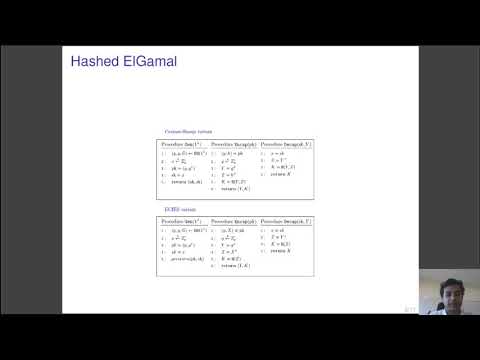CryptoDB
Memory-Tight Reductions for Practical Key Encapsulation Mechanisms
| Authors: | |
|---|---|
| Download: | |
| Abstract: | The efficiency of a black-box reduction is an important goal of modern cryptography. Traditionally, the time complexity and the success probability were considered as the main aspects of efficiency measurements. In CRYPTO 2017, Auerbach et al. introduced the notion of memory-tightness in cryptographic reductions and showed a memory-tight reduction of the existential unforgeability of the RSA-FDH signature scheme. Unfortunately, their techniques do not extend directly to the reductions involving intricate RO-programming. The problem seems to be inherent as all the other existing results on memory-tightness are lower bounds and impossibility results. In fact, Auerbach et al. conjectured that a memory-tight reduction for security of Hashed-ElGamal KEM is impossible. We refute the above conjecture. Using a simple RO simulation technique, we provide memory-tight reductions of security of the Cramer-Shoup and the ECIES version of Hashed-ElGamal KEM. We prove memory-tight reductions for different variants of Fujisaki-Okamoto Transformation. We analyze the modular transformations introduced by Hofheinz, Hövermanns and Kiltz (TCC 2017). In addition to the constructions involving implicit rejection, we present a memory-tight reduction for the security of the transformation $$mathsf{ ext {QFO}_m^perp }$$ . Our techniques can withstand correctness-errors, and applicable to several lattice-based KEM candidates. |
Video from PKC 2020
BibTeX
@article{pkc-2020-30289,
title={Memory-Tight Reductions for Practical Key Encapsulation Mechanisms},
booktitle={Public-Key Cryptography – PKC 2020},
series={Public-Key Cryptography – PKC 2020},
publisher={Springer},
volume={12110},
pages={249-278},
doi={10.1007/978-3-030-45374-9_9},
author={Rishiraj Bhattacharyya},
year=2020
}

